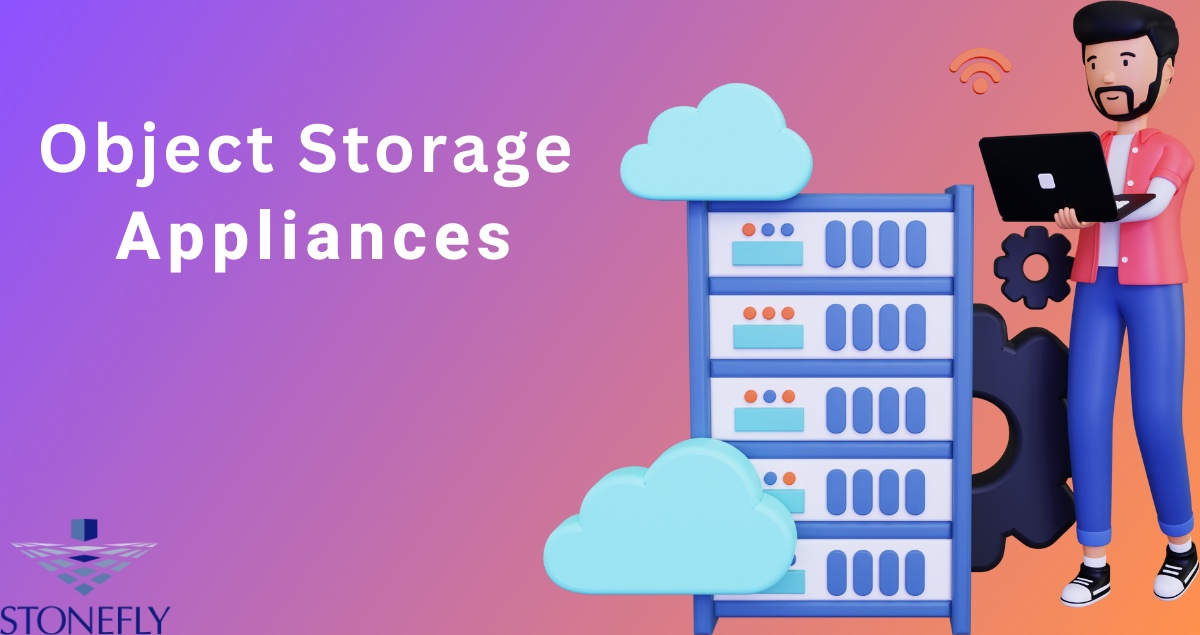Object Storage Appliance: The Future of Data Storage
In today's world where data is increasing at an exponential rate, traditional storage methods are struggling to keep up. This has led to the rise of object storage appliances as a solution for managing and storing massive amounts of data efficiently. In this document, we will dive into the details of what an Object Storage Appliance is, how it works, and why it is considered the future of data storage.
What is an Object Storage Appliance?
An object storage appliance is a type of storage hardware that stores data in a non-hierarchical structure as objects rather than files or blocks. It uses a unique identifier to retrieve objects rather than relying on traditional file paths. This makes it easier to manage large amounts of data and eliminates the need for complex file systems.
How Does an Object Storage Appliance Work?
Object storage appliances use a software layer that sits on top of commodity hardware to create a unified storage pool. This allows multiple nodes or devices to work together to store, manage, and retrieve data as objects. The software layer also provides advanced features such as automated data tiering, data protection, and data replication.
Benefits of Object Storage Appliance
Scalability:
One of the biggest advantages of object storage appliances is their ability to scale seamlessly as data grows. With traditional storage methods, adding more capacity often requires complex configurations and downtime. But with an object storage appliance, new devices can be added to the cluster without any disruption.
Cost-Effective:
Object storage appliances are built on commodity hardware, making them a cost-effective solution for storing large amounts of data. Additionally, their scalability means that businesses can start with a smaller investment and expand as needed, avoiding any upfront costs associated with traditional storage solutions.
High Availability and Reliability:
Since object storage appliances use a distributed architecture, they offer high availability and reliability. In case one node or device fails, data can still be accessed from other nodes, ensuring minimal downtime.
Simplified Data Management:
Object storage appliances eliminate the need for complex file systems and provide a single pool of storage to manage all data types. This makes it easier for businesses to store, organize, and access their data efficiently.
Better Data Protection:
Object storage appliances offer advanced data protection features such as data replication and automated tiering. This ensures that data is always available, even in the event of hardware failures or disasters.
Improved Performance:
With an object storage appliance, data can be accessed and retrieved much faster compared to traditional storage methods. This is because objects are stored and retrieved using unique identifiers rather than file paths.
Multi-tenancy:
Object storage appliances allow multiple users and applications to access the same data without any conflicts or disruptions. This makes it ideal for businesses with different departments and teams that need to access the same data.
Cloud Integration:
Many object storage appliances offer seamless integration with cloud services, allowing businesses to store their data in a hybrid cloud environment. This provides additional flexibility and cost savings for storing and managing data.
Cost Savings on Data Backup and Recovery:
Object storage appliances offer built-in data protection features, eliminating the need for businesses to invest in separate backup and recovery solutions. This not only saves costs but also simplifies data management processes.
Compliance and Security:
Object storage appliances provide granular data access controls and strong encryption capabilities, making them a secure option for storing sensitive data. They also offer compliance with various regulations such as HIPAA and GDPR.
Future-Proof:
As the amount of data continues to grow, object storage appliances are designed to seamlessly handle this growth without any disruption. This makes them a future-proof solution for businesses looking to store and manage their data efficiently.
Easy Integration:
Object storage appliances can be easily integrated with existing IT infrastructure, making it a convenient option for businesses to adopt without the need for significant changes or disruptions.
Complementing Traditional Storage Methods
Object Storage as a Secondary Tier:
Object storage appliances can be used in conjunction with traditional storage methods to create a secondary tier for storing cold or less frequently accessed data. This helps businesses free up space on their primary storage and reduce costs associated with maintaining large amounts of data.
Backup, Archive, and Disaster Recovery:
Object storage appliances are an excellent option for Backup, archiving, and disaster recovery purposes. They offer high availability, reliability, and data protection features, making them ideal for storing critical data.
Conclusion
Object storage appliances are the future of data storage. With their scalability, cost-effectiveness, high availability and reliability, simplified data management, and advanced data protection features, they provide a comprehensive solution for managing large amounts of data efficiently. They also offer seamless integration with existing IT infrastructure and can complement traditional storage methods, making them a versatile option for businesses of all sizes. As data continues to grow exponentially, object storage appliances are poised to become an essential component of any organization's data storage strategy.
FAQs
1. How is an object storage appliance different from traditional storage methods?
An object storage appliance uses a software layer to create a unified pool of storage using commodity hardware, eliminating the need for complex file systems. This allows for seamless scalability and advanced data protection features.
2. Can an object storage appliance be integrated with existing IT infrastructure?
Yes, most object storage appliances are designed to be easily integrated with existing IT infrastructure, making it a convenient option for businesses looking to adopt this technology.
3. Can an object storage appliance be used for backup and disaster recovery?
Yes, object storage appliances offer high availability and advanced data protection features, making them an ideal option for backup and disaster recovery purposes.
4. How does an object storage appliance ensure data security?
Object storage appliances offer strong encryption capabilities and granular data access controls, ensuring the security of sensitive data. They also comply with various regulations such as HIPAA and GDPR.
5. Can I start small with an object storage appliance and scale up later?
Yes, one of the main advantages of using an object storage appliance is its scalability. Businesses can start with a small appliance and add more nodes or devices as their data storage needs grow.


No comments yet